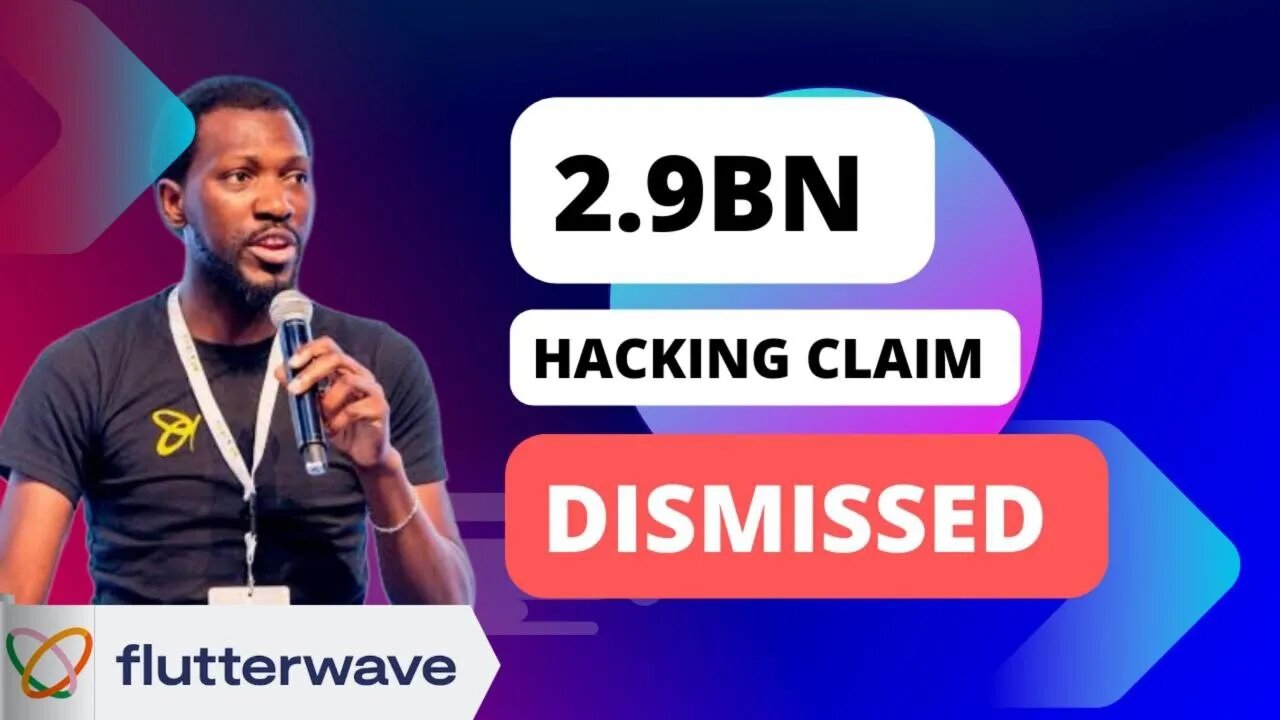Premium Only Content

"2.9 BILLION Naira Alleged HACK - Here's What We Know | Flutterwave"
Flutterwave, a popular digital payments platform and Africa’s most prominent startup by private valuation has denied recent reports of a hack that allegedly led to the loss of N2.9 billion (~$4.2 million) from its system. In a statement issued on Sunday, Flutterwave said that none of its customers lost any money and that the platform was not hacked.
According to the documents, unknown actors transferred the funds across 28 accounts in 63 transactions in early February. Police investigations are ongoing as Flutterwave, via legal counsel and law enforcement parties, has filed a motion and seeks to freeze accounts across 27 financial institutions that interacted with the missing funds, Techpoint Africa reported.
At Flutterwave, we understand that our customer’s personal and financial information is of the utmost importance. We take this responsibility seriously and understand that any potential security breach can cause anxiety and concern among our customers. We want to reassure you that Flutterwave has not been hacked. As a financial institution, we monitor transactions through our transaction monitoring systems and 24-hour fraud desk and review any suspicious activity. We collaborate with other financial institutions and law enforcement agencies to keep our ecosystem safe and secure.
During a routine check of our transaction monitoring system, we identified an unusual trend of transactions on some users’ profiles. Our team immediately launched a review (inline with our standard operating procedure), which revealed that some users who had not activated some of our recommended security settings might have been susceptible.
We want to confirm that no user lost any funds, and we take pride in the fact that our security measures were able to address the issue before any harm could be done to our users.
Our commitment to keeping our users’ financial information safe and secure is why we invest heavily in security initiatives such as periodic audits, certifications, and licenses such as the PCI-DSS & ISO 27001. These are in line with global best practices in information security management.
-
 1:24:47
1:24:47
Kim Iversen
7 hours agoMafia Tactics: A Private Equity Firm Forced Her Into An Abortion To Retaliate Against Her Speaking Up.
52.5K32 -
 2:36:29
2:36:29
Fresh and Fit
6 hours agoCall-In Show
81.3K31 -
 4:08:29
4:08:29
Nerdrotic
9 hours ago $58.53 earnedHollywood in PANIC! Woke Celebrity Meltdown, Penguin Finale CRUSHES! | Friday Night Tights #328
141K29 -
 1:41:22
1:41:22
The Officer Tatum
4 hours agoLIVE: Trump NOMINATES Karoline Leavitt, Whoopi "SMOLLETT" EXPOSED, & MORE | Officer Tatum Show EP 8
28.3K35 -
 30:25
30:25
Glenn Greenwald
6 hours agoGlenn Takes Your Questions Post-Election On The Trump Admin & More
124K44 -
 1:26:23
1:26:23
vivafrei
9 hours agoChinese and Indian INFILTRATION in Canadian Government? Live with David Krayden! Viva Frei Live
128K50 -
 52:17
52:17
Candace Show Podcast
9 hours agoFight Night! Me VS Marc Lamont Hill On Transgenderism | Candace Ep 104
143K315 -
 1:12
1:12
Mike Tyson
9 hours ago $25.90 earnedIt's a war.
114K37 -
 1:04:11
1:04:11
In The Litter Box w/ Jewels & Catturd
1 day agoProsecute/Fauci | In the Litter Box w/ Jewels & Catturd – Ep. 692 – 11/15/2024
131K57 -
 5:17
5:17
BFFs: Dave Portnoy, Josh Richards & Bri Chickenfry
10 days agoSmallest Man
271K24